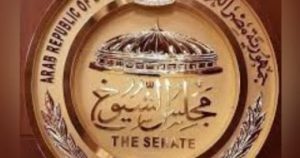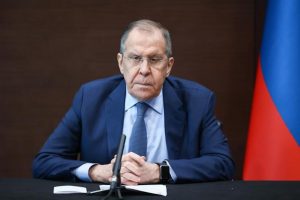The late Palestinian leader Yasser Arafat before a special session of the United Nations in Geneva in 1988.
In 1988, while Palestinian leader Yasser Arafat was preparing to deliver a speech at the United Nations in New York, the United States refused to grant him a visa, accusing him of involvement in “terrorism,” following the Palestinian National Council’s declaration of the establishment of the Palestinian state in Algiers in November of that year.
At that time, the American stance sparked a major diplomatic crisis, and the decision by then-Secretary of State George Shultz was met with disapproval. It was said that the decision was made without coordination with President Ronald Reagan. The Palestinian response was angry: “Yasser Arafat is a terrorist just like the first American president George Washington.” Due to the U.S. obstinacy, the United Nations exceptionally decided to move the General Assembly meetings to its European headquarters in Geneva, Switzerland.
After 37 years, the U.S. State Department issued a statement saying that Secretary of State Marco Rubio canceled visas for senior Palestinian Authority officials and President Mahmoud Abbas to enter the United States to attend the United Nations General Assembly, justifying this by saying that the Palestinian Authority “does not abide by its commitments, denies terrorism, and has not ceased incitement and attempts to circumvent negotiations by turning to the United Nations for recognition of the Palestinian state.”
The Israeli newspaper “Haaretz” commented in its editorial on the decision: “A neutral mediator does not act this way, but a state that completely sides with Israel, whose government opposes every ‘new day’ in the Gaza Strip and pushes forward with annexing the West Bank and reoccupying Gaza.”
Host Agreement of the Headquarters
While the United States occasionally violates the Headquarters Agreement that regulates relations with the United Nations, signed in 1947, the hosting agreement stipulates that the UN headquarters enjoys broad independence and is “subject to the control and authority of the United Nations.”
The United States must not obstruct the passage of UN staff, representatives of member states, invited experts, and accredited media representatives to the headquarters area. Visa issuance procedures under the agreements include “issuing them free of charge and as quickly as possible.”
Between the Ban of Abu Ammar and Abu Mazen
On December 13, 1988, Arafat addressed the U.S. administration and the world from Geneva, saying: “Successive U.S. administrations know that the only birth certificate for the establishment of the State of Israel is Resolution 181 issued by the General Assembly on November 29, 1947, which was then approved by the United States and the Soviet Union, stipulating the establishment of two states in Palestine, one Arab Palestinian and the other Jewish.
So how does the U.S. government explain its position that recognizes half of this resolution related to Israel but rejects the other half related to the Palestinian state? And how does it explain its failure to implement Resolution 194, which it has adopted multiple times in your esteemed assembly, which grants Palestinians the right to return to their homes and properties from which they were expelled, or compensation for those who do not wish to return?”
Analysts and experts see that the ban on Arafat entering the U.S. was an exceptional case linked to the pre-Oslo stage, but the ban on Abbas, the architect of the “Oslo Agreement,” has no explanation, noting that U.S. policies have become harsher on Palestinians, with the ban also including various social segments holding Palestinian passports.
“An-Nahar” asked the political advisor to the Minister of Foreign Affairs and Expatriates, Ambassador Ahmed Al-Deek, who commented: “We expressed our astonishment and surprise at this decision, which contradicts the efforts made by President Trump and his declared positions on trying to end wars, resolve conflicts, and establish peace in the world. It also contradicts the Headquarters Agreement between the United States and the United Nations. The reasons presented by Rubio are unjustified and incorrect to us, so we sent him a letter stating that the reasons are illogical and conveyed the message to the American press, in addition to our concern that the Israeli government might build on this decision and escalate by taking more arbitrary measures against the Palestinian people and leadership.”
Al-Deek added: “We are keen to build the strongest and most solid bilateral relations with the U.S. administration and have channels of dialogue. Rubio could have discussed any reservations with the Palestinian leadership through these channels, but he did not resort to this diplomatic method. Therefore, we are making diplomatic efforts with Arab and Islamic countries to try to dissuade the U.S. administration from its decision.”
Regarding whether the leadership will try to communicate with the U.S. Secretary of State, who will arrive in Israel on a visit on September 14 and will participate in an event of the settlement organization controlling the archaeological site “City of David” in the Silwan neighborhood south of the Al-Aqsa Mosque, Al-Deek replied: “There is no detailed information about the minister’s visit program to Israel, and the question should be directed to Rubio: Why does he not visit the Palestinian leadership and engage in dialogue with them on all issues, especially since we are fully prepared to receive him and discuss all substantive issues including this decision.”














Recommended for you
Exhibition City Completes About 80% of Preparations for the Damascus International Fair Launch
Talib Al-Rifai Chronicles Kuwaiti Art Heritage in "Doukhi.. Tasaseem Al-Saba"
Unified Admission Applications Start Tuesday with 640 Students to be Accepted in Medicine
Egypt Post: We Have Over 10 Million Customers in Savings Accounts and Offer Daily, Monthly, and Annual Returns
Al-Jaghbeer: The Industrial Sector Leads Economic Growth
His Highness Sheikh Isa bin Salman bin Hamad Al Khalifa Receives the United States Ambassador to the Kingdom of Bahrain